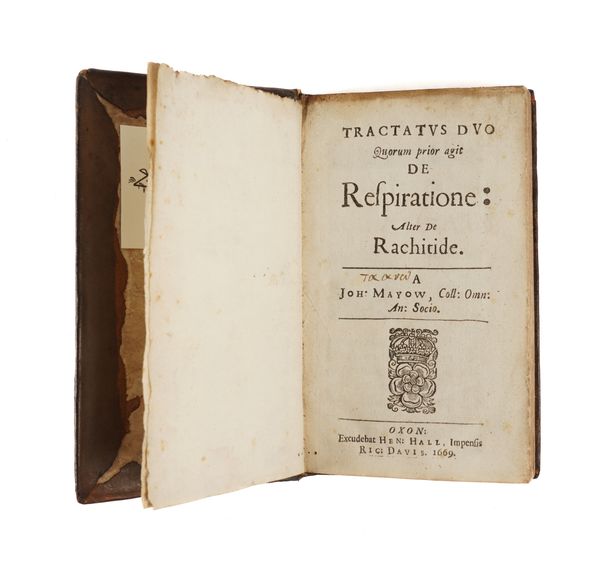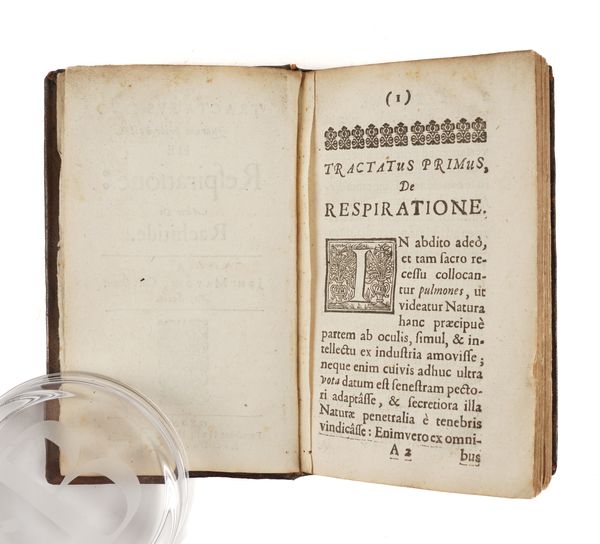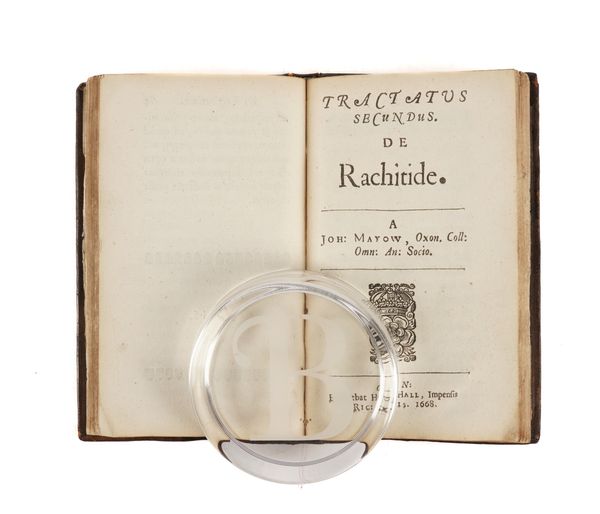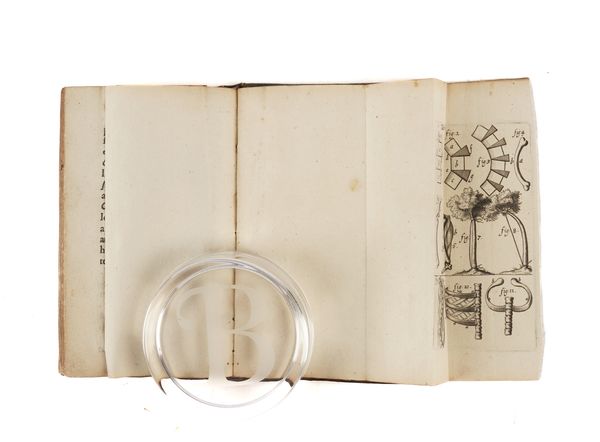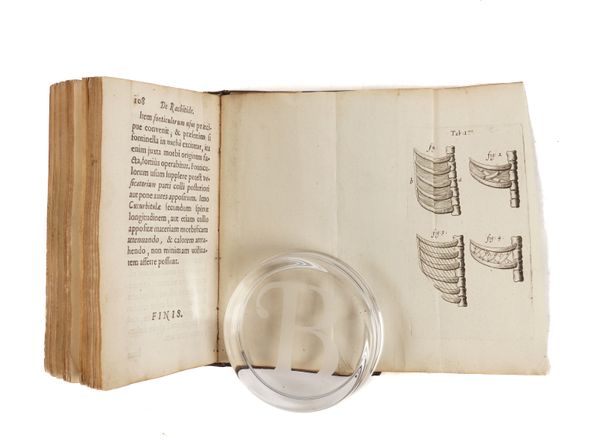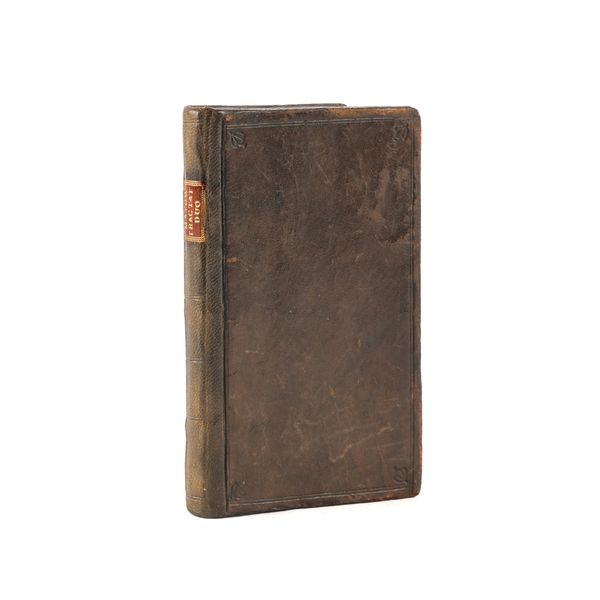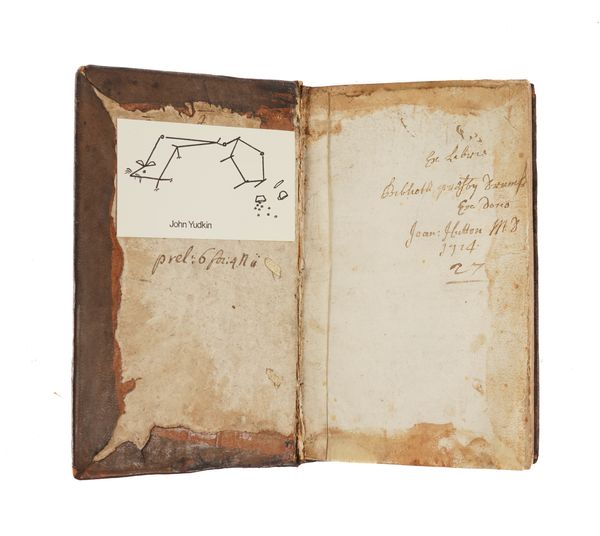Buyers Premium 25% + VAT | VAT is not applicable on bound books
MAYOW, John (1640-79). Tractatus duo Quorum prior agit de Respiratione: Alter De Rachitide, Oxford, 1669, 8vo, 2 folding engraved plates at the end, contemporary calf (rebacked). Provenance: From the Collection of John Yudkin (bookplate). Wing 1536. RARE.
| Estimate: | £2,000 - £3,000 |
| Hammer price: | £1,500 |
MAYOW, John (1640-79). Tractatus duo Quorum prior agit de Respiratione: Alter De Rachitide. Oxford: "Excudebat Hen: Hall, Impensis Ric: Davis," 1669 [including, as part of the same work, but with its own title page, Tractatus Secundus de Rachitide. Oxford: 1668]. 8vo (156 x 92mm). Woodcut printer's device on both titles, 2 folding engraved plates at the end, initials and typographical ornaments (a few wormholes at margin near gutter, not affecting letters, some light mainly marginal spotting and staining). Contemporary calf ruled in blind (rebacked preserving old red morocco lettering-piece, lightly rubbed). Provenance: From the Collection of Professor John Yudkin (modern bookplate; please see the biographical note at the end of lot 308); Joan: Hutton M.D., 1714 (inscriptions on front pastedown and front free endpaper); old inscription in Greek on title page. [?]A re-issue of the first edition of 1668 with the first title-page possibly a cancel dated 1669. "In the tract on 'Respiration' (1668) [?but 1669] he described its mechanism, with the movement of ribs and diaphragm, almost as perfectly as can be done today. He made the capital discovery of the double articulation of the ribs with the spine, and put forward views with regard to the function of the internal intercostals which are still under discussion. The function of breathing is merely, he says, to bring air in contact with the blood, to which it gives up its nitroaerian constituent (oxygen), and from which it carries off the vapours produced by the heating of the blood ... [Mayow] must be classed with Hooke and Boyle, possessing the scientific imagination of the one, the tenacity of the other, and succeeding where Boyle failed. He had the genius to perceive exactly the problems which must be solved before any great advance in chemistry or physiology could be made, to guess at and partly to discover their solutions; and he showed a critical faculty in theory and experiment that is not to be met with in these two sciences until we come to Lavoisier. His premature death retarded the advent of modern chemistry for more than a century" (DNB). Fulton 105; not in Garrison & Morton; Madan Oxford Books 2834; Wing M1536. RARE.
